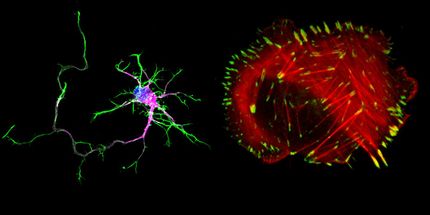Unlikely genetic suspect implicated in common brain defect
Advertisement
A genetic search that wound its way from patients to mouse models and back to patients has uncovered an unlikely gene critically involved in a common birth defect which causes mental retardation, motor delays and sometimes autism, providing a new mechanism and potentially improving treatment for the disorder.
Researchers from the University of Chicago, University of Alberta and other institutions announce in Nature Genetics that the FOXC1 gene contributes to Dandy-Walker malformation (DWM), a brain defect that occurs in 1 of every 5,000 births. The role of the gene in Dandy-Walker malformation dispels the fog surrounding what goes awry in the brains of children born with the disorder. DWM is characterized by an improperly formed cerebellum, the region at the back of the brain involved in movement and coordination. As a result children with this disorder require considerable medical care, and in some cases surgery to treat the build up of fluid around the brain, a condition called hydrocephalus.
Researchers were surprised to discover that the FOXC1 gene mediated development of the cerebellum and contributed to DWM, as the gene is never actually expressed in the brain itself. Instead, the FOXC1 gene is expressed in fetal tissue called mesenchyme, which forms the skull and other layers that surround and protect the brain. That mechanism suggests an exciting new element of embryonic brain development, said study co-author Kathleen Millen, Ph.D., assistant professor of human genetics at the University of Chicago.
"The developing skull and all the stuff around the brain actually are as important for brain development as the brain itself," Millen said.
In the developing fetus, FOXC1 acts as a "master regulator," directing the expression of other genes that, in turn, give instructions necessary for the adjacent embryonic brain to properly form.
"It's controlling downstream genes, and some of those downstream genes we know are signaling molecules and growth factors that apparently are required for brain development," Millen said. "When you don't have them the brain gets screwed up; not because the causative gene is expressed in the brain but because it's in the surrounding tissue."




















































